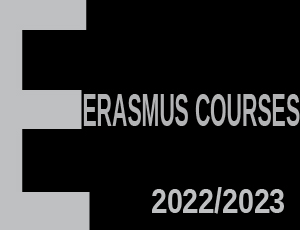
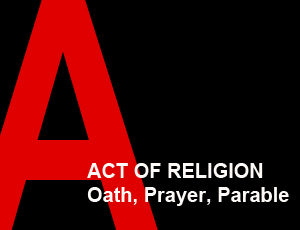
dr Urszula Idziak-Smoczyńska Seminar/ 30 h / 4 ECTS / summer semester
The course will be devoted to the analysis of selected religious categories present in contemporary philosophical discourse. The choice of the parable, the oath and the prayer offers a wide perspective on the philosophical dialogue with religion in the XXth/XXIst centuries, spreading from individualistic approach (prayer) to political theory (oath). Although this choice is primarly dictated by a linguistic revolution in the realm of continental philosophy drawing on meaning only through linguistic figures. The oath, the prayer and the parable will thus be taken under consideration as a grammar of religious experience, in accordance with Nietzsche’s statement that we won’t get rid of God being still faithful to grammar”. 1) The narrative of the end of metaphysics 2) Zoon legon echon 3) The cartesian fable as method 4) The history of „mana” as floating signifier 5) Against communication 6)The parable as new philosophical paradigm 7)The parable of the prodigal son between Jews and Christians 8) Ludwig Wittgenstein as a philosopher of the parable, 9) The body as subject of confession? 10) Performative certainty 11) A prayer for the impossible 12) Walter Benjamin and the language of justice 13) The archeology of the oath 14) The confessing subject 15) The calling subject
e-mail: urszula.idziak-smoczynska@uj.edu.pl
https://religioznawstwo.uj.edu.pl/web/instytut-religioznawstwa/dr-urszula-idziak-smoczynska

Lecture/Seminar / 30h / 4 ECTS / summer semester Coordinator: Matylda Ciołkosz
The aim of the course is to get the participants acquainted with the polysemy of the term yoga and to instill in them a thorough understanding of the historical transformation of the phenomenon in question, from its ancient roots up to the modern forms of practice observable both in India and globally. Yoga shall be presented as a theoretical system (darśana) grounded in firm cosmo- anthropo- and soteriological assumptions and as practical means of achieving (or supporting the achievement of) soteriological goals in different contexts.
Attention will be given to the sociopolitical context of modernity, which resulted in the emergence of modern yoga, as well as to the contemporary developments both in India and worldwide.
The first eight meetings will be lecutres summarizing the historical transformations of yoga. During the remaining meetings, a selection of readings will be discussed pertaining to the academic study of yoga.
email: matylda.ciolkosz@uj.edu.pl
https://religioznawstwo.uj.edu.pl/dr-matylda-ciolkosz
https://sylabus.uj.edu.pl/pl/document/b70360e6-f685-45dc-9404-fc4715df532d.pdf
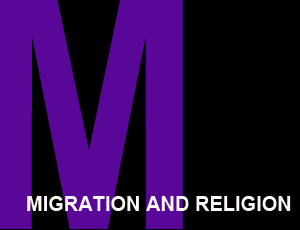
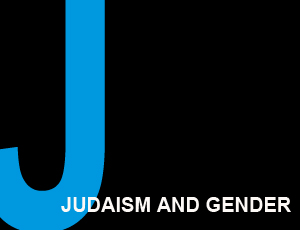
Seminar / 30h / 4 ECTS / summer semester Coordinator: dr Barbara Krawcowicz
The course is devoted to an exploration of concepts, ideas, and practices related to gender in Jewish religious thought and practice in historical perspective. Using gender as an analytical category, we will begin from analyzing classical Jewish texts to see what they say about men and women, about differences and relations between them. After learning about gender and its understanding(s) in Judaism’s foundational texts we will move on to consider how Jews throughout history understood and lived out sexual difference. Then we will have a closer look at how various Jewish communities today approach questions related to gender and delve into often very heated contemporary Jewish debates about gender identity and equality. In other words, this class will discuss how Jewish texts and traditions present men, women, gender, and sexuality and the contemporary legacy of these representations. The course does not require any prior knowledge of Judaism.
email: barbara.krawcowicz@uj.edu.pl
https://religioznawstwo.uj.edu.pl/web/instytut-religioznawstwa/dr-barbara-krawcowicz
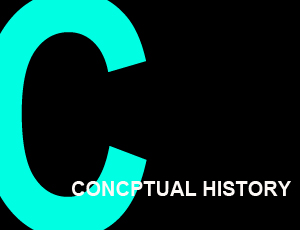
Seminar / 30h / 4ETCS / winter semester* (10.10-20.10.2022) Coordinator: prof. Kianoosh Rezania email: kianoosh.rezania@rub.de
Zoroastrianism, or the religion of Zarathustra, is an Iranian religion whose beginnings go back to about 12-10th century BC. It is practiced to the present day in Iran and India, as well as in diaspora. Zoroastrian texts are composed in different languages, mainly in Avestan, Middle Persian, New Persian, Gujarati and Sanskrit. Avestan is an Old Iranian language spoken in north-eastern parts of the Iranian plateau in the second and first millennium B.C. Middle Persian is a Middle Iranian language, of which we have written evidence from the 3rd to the 10th centuries CE. New Persian, a child of Middle Persian, is a new Iranian language, spoken today in Iran, Afghanistan and Tajikistan. In this course, we will read texts from these three corpora.
This course will firstly introduce the students to the topic ‘conceptual history’ and its merits for the study of religion. Afterwards, it will present an overview of the history of Zoroastrianism and its main concepts. Subsequently, the course will focus on different Zoroastrian concepts as represented in the original Zoroastrian texts. They include Zoroastrian cosmogony and cosmology, millenniarism, immanence and transcendence, purity of women, religious organization, death, and eschatology. Although we will mainly read these texts in translation, the course will present an insight to the Zoroastrian literature from a 3000 years long period. Doing so, it attempts to convey the historical primary literature of a religion to the students without presupposing a knowledge of the Iranian languages. Nevertheless, a knowledge of the primary languages is more than welcome.
The seminar consists of two parts, the introductory part and the discussion of the primary sources. In every session of the second part, we will closely read an excerpt from a primary text and discuss the concepts represented in it. The students should study these texts in advance and be prepared for the discussion in the course. The active participation in the discussions in the course constitutes the center of the seminar. Doing so, the students will practice reflective engagement with primary historical sources. The reading material will be circulated before the beginning of the seminar.
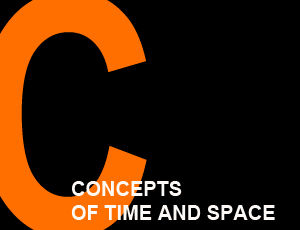
Seminar / 30h / 4ETCS / winter semester* (10.10-20.10.2022) Coordinator: prof. Kianoosh Rezania email: kianoosh.rezania@rub.de
Time and Space are not only two basic dimensions of our physical world but one of fundamental importance for the conceptualization of many religious ideas. Whereas space is basic and omnipresent in our cognitive processes, time is one the most enigmatic concepts of mankind. Different aspects such as the biological, cosm(ogon)ic, calendrical, social and finally the transcendental cross at the abstract concepts called time and space. In some religious themes such as eschatology or cosmogony, the concept of time is particularly emphasized. In contrast, in the delimitation of ritual surface and its direction, the concept of space is accentuated. The course will discuss how time and space can be conceived in a religion. The linear, circular, or spiral movement of time for example, or different forms of spatial delimitation, have consequences on or depends on the wider concepts of a religion. How the priestly organization depends on the spatial organization of a society, or the intersection of space and purity are some examples, how space could be a matter to a religion.
In this course, we will systematically deal with the concepts of time and space. We will scrutinize some theories about time and space in the study of religion, on the one hand, and will study some examples in the ancient and late antique history of Iranian religions. Of particular interest will be the genesis of time abstraction and its relation to space, the emergence and development of temporal and spatial conceptions in the history of religions. In the course we will discuss cosmic, ritual and social aspects of space as well as cosmogonic, ritual and eschatological conceptions of time. A comparative approach will be practiced in the course.
In every session, we will critically discuss a text which the students have carefully read in advance. The active participation in the discussions in the course constitutes the center of the seminar. Doing so, the students will practice reflective engagement with literature. The texts might be theoretical or excerpts from primary source in translation. The reading material will be circulated before the beginning of the seminar.
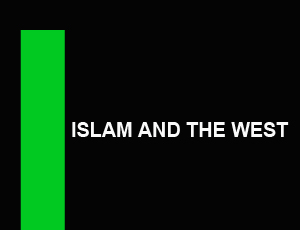
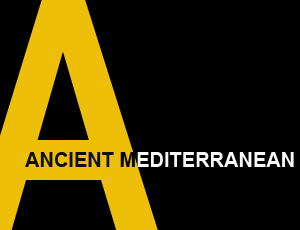
Lecture and seminar /60h/6 ECTS/winter semester Coordinator: dr hab Ioanna Patera
This course offers an overall picture of the main topics of ancient Greek religion. The Greek theogony and the main gods will be presented through their myths and cults. Human behaviour towards gods and other supernatural beings will show general patterns and a number of variations that are sometimes thoroughly regulated. The topics will be presented along with an adequate methodology proper to the discipline.
https://religioznawstwo.uj.edu.pl/web/instytut-religioznawstwa/dr-hab.-ioanna-patera
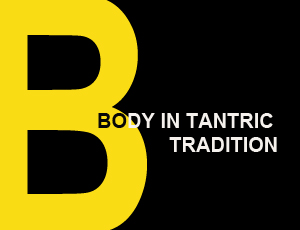
Seminar / 30 h / 4 ECTS / winter semester Coordinator: Robert Czyżykowski
The course is an introduction into the topic of the embodiment in the Indian Tantric traditions. The participants of the course will be acquainted with the topics covering the genesis, historical development, social institutions, initiation rituals and esoteric aspects of Tantric tradition in various contexts relating to the main topic of the embodiment. Tantric tradition underlines the concept of deliverance through the body. Special interests will enjoy the area of the various methods of Tantric Yoga where the human body is a vehicle in realizing the soteriological and other goals. A dominant part of the course is covered by the most prominent Tantric traditions, namely Vaishnava, Śaiva and Śakta with some introduction to the Buddhist Tantric tradition. After completing the course students will be able to integrate and evaluate the basic knowledge about Tantric groups in India and to a limited degree outside India. Students will gain awareness of the proposed methodologies for studying such religious phenomena.
email: r.czyzykowski@uj.edu.pl
https://religioznawstwo.uj.edu.pl/web/instytut-religioznawstwa/dr-robert-czyzykowski

Class / 60h / 6 ECTS / winter semester Coordinator: dr hab Ioanna Patera
This course offers a detailed picture of the setting of Greek rituals. After a definition of “ritual” and a discussion of the main scholarly theories, we shall look to the specific case of Greek practices. To honour the gods, individuals and cities prayed, brought dedications, and sacrificed. The main question is how they accomplished these actions, i.e. what they were saying and doing. Specific cases will be examined during the seminar in order to settle how Greeks proceed according to various sources, literary descriptions, epigraphic documents, and iconographic evidence.
email: ioanna.patera@uj.edu.pl
https://religioznawstwo.uj.edu.pl/web/instytut-religioznawstwa/dr-hab.-ioanna-patera
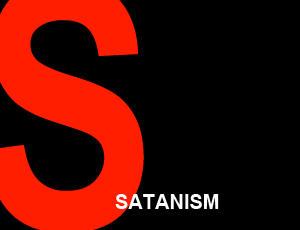
Seminar / 30h / 4 ECTS / summer semester Coordinator: dr hab. Piotr Czarnecki
The aim of this course is to acquaint students with the problem of contemporary Satanism, that is in the period covering the second half of the 20th and in the 21st century. During the course, students will have the opportunity to discover various aspects and interpretations of this phenomenon basing on the most recent academic literature and source materials. The main part of the course will be centered around the analysis of contemporary groups, representing two main branches of Satanism - atheistic and theistic. Basing on source materials, students will find answers to the questions of their origins, inspirations, specificity and directions of doctrinal evolution. Special attention will be payed to the crucial communities - the most influential in contemporary satanic environment – that is The Church of Satan, and Temple of Set. Another important subject of analysis are the phenomena directly influenced by Satanism, such as satanic themes in pop-culture, especially in extreme metal music, or the so-called Satanic panic or Great Satanic Scare of the 1980s. and 1990s.
email: piotr.czarnecki@uj.edu.pl
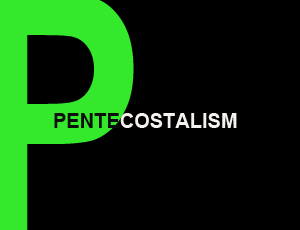
Seminar / 30h / 4 ECTS / winter semester Coordinator: dr Marcin Rzepka
This course gives an overview on global Pentecostalism and Charismatic movements. We look at contemporary Pentecostalism as one of the most intriguing examples of the dynamics of religion in the contemporary world. Often framed in terms of Pentecostal explosion and Pentecostal revolution, Pentecostalism is without doubt one of the most vital and diversified religious phenomena worldwide. It is transformative and conservative at the same time. It is both institutionalized and spiritual. These ambiguities make Pentecostalism difficult to capture. Does Pentecostalism show us a new face of Christianity? Is Pentecostalism alternative in terms of culture? Is it the agent of neoliberalism? Studying Pentecostal cultural and social dynamics, we might ask what Pentecostalism tell us about the ontological status and epistemic frame of religion in contemporary world.
email: marcin.rzepka@uj.edu.pl
https://religioznawstwo.uj.edu.pl/web/instytut-religioznawstwa//dr-hab.-marcin-rzepka
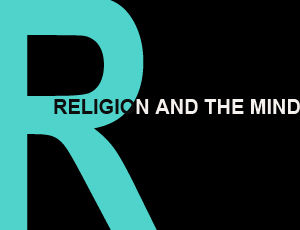
Lecture/Seminar / 30h / 4 ECTS / summer semester Coordinator: Matylda Ciołkosz
The aim of the course is to get the participants acquainted with the relation between the mind, cognition, and religion and the study of religions. The first half of the course will be an introduction to the philosophy of mind and to the cognitive study of religions. During the second half of the course, a selection of readings will be discussed tackling the relation between religion and mentality from the philosophical, psychological, and anthropological perspective. The overarching aim is the course is to create a framework that will make it possible to theorize, how “the mind” creates and interprets religious concepts and religious experience.
e-mail: matylda.ciolkosz@uj.edu.pl
https://religioznawstwo.uj.edu.pl/dr-matylda-ciolkosz
https://sylabus.uj.edu.pl/pl/document/0e45c708-b45e-48b0-abee-60cbafb57654.pdf
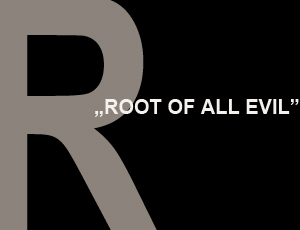
Seminar / 30h / 4 ECTS / summer semester Coordinator: dr Aneta Czernatowicz-Kukuczka
Most people around the world identify themselves as religious and/or spiritual. Constantly, religion influences not only psychological functioning of an individual, but also exerts strong impact on various social and political phenomena. Given the current socio-political tensions around the world, it seems crucial to understand what is the role of religion in shaping intergroup relations. Indeed, in psychology we can find number of studies on the consequences of religiosity, e.g. for political views, violence, but for also for prosocial behaviors and altruism. The purpose of the course is to introduce students to the social consequences of religion from psychological perspective. The real-world applicability of the results will be also discussed.
email: aneta.czernatowicz-kukuczka@uj.edu.pl
https://religioznawstwo.uj.edu.pl/web/instytut-religioznawstwa/dr-aneta-czernatowicz-kukuczka
https://sylabus.uj.edu.pl/pl/4/1/3/15/68

